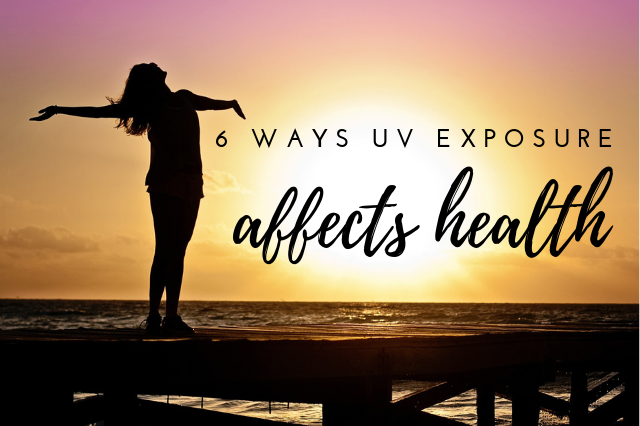Ultraviolet rays otherwise known as UV rays are notorious for the effects they do with the skin. However, skin expert Dr. Usha Rajagopal states that there are also other harmful effects of these sun’s rays that go far beyond skin deep.
Ultraviolet light is one of the types of rays in the light spectrum that is quite strong in intensity than visible light. Since it can penetrate cells of the human body, any person exposed to it can be at risk for health problems. What are some of the ways that UV light can affect us?
UV exposure can cause sunburn.
Exposure to UV light is what primarily causes sunburn when people are out in sun. Sunburn is caused by the dilation of the outermost blood vessels in the skin layer caused by exposure to the UV rays of the sun. When left untreated, severe sunburn can cause pain, swelling, blistering, and peeling of the skin. Those which have fairer skin, have red or blonde hair, blue eyes and freckles are more prone to having sunburn caused by UV radiation.
Additionally, children and the elderly are also more sensitive to UV radiation caused by premature or degenerating skin structure.
UV exposure can cause skin tanning.
Aside from sunburn, UV exposure can cause skin tanning. Although a desirable trait for some, tanning has some negative effects when it comes to your skin’s protective capabilities. Tanning is caused by the increase in melanin, and although it can protect the skin for subsequent exposures, it may not be as effective for those with fairer skin.
Over-tanning may also pose serious skin-related health complications as UV exposure can reach other layers of the skin.
UV rays may bring about premature skin aging.
If you are sensitive about wrinkles and fine lines, Dr. Usha Rajagopal recommends not to prolong your exposure to the sun.
Overexposure to the sun along with its UV rays can cause the skin to lose its elasticity. Extra sun exposure may cause drying of the skin’s collagen, making it more prone to fine lines, wrinkles, and sun spots. Although this is more common as people age, some people who have more sun exposure can have skin damage earlier than expected.
UV rays may cause suppression of the immune system.
UV radiation can also cause a suppressed immune system. When the immune system is compromised, there is a high chance that non-melanoma skin cancers can develop. In many cases, prolonged UV exposure can cause the parts of the immune system responsible for rejecting tumor cells.
With the immune system being problematic, the T-cells cannot function well which causes the skin to be exposed to infection as well as the body to different types of bacteria and viruses.
UV exposure may damage the eyes.
Aside from the skin, UV exposure can also cause vision damage. 99% of UV rays are received at the frontal part of the eyes which may cause different defects. There is a high risk of cataracts, corneal damage, macular degeneration, and visual impairments when it comes to prolonged UV exposure.
Some skin cancers also start by originating from the eye, which is called intraocular melanoma. The risk for eye damage is 8 times for common for fair-skinned people than for dark-skinned people.
UV rays can cause skin cancer.
Skin cancer is one of the top-occurring cancers in terms of global statistics. The most common ones are melanoma, non-melanoma cancers, basal cell carcinoma, and squamous cell carcinoma.
Exposure to UV radiation is a large contributing factor to these types of skin cancers, especially when people repeatedly go towards the sun without protection. The prevalence of skin cancer is increasing yearly, and there are campaigns that help people increase awareness about the dangers of sun damage.
UV rays do more harm to the body than good. By using the right sunblock protection and reducing your exposure to harmful sun’s rays, you can lessen your chances of developing complications from UV exposure.
